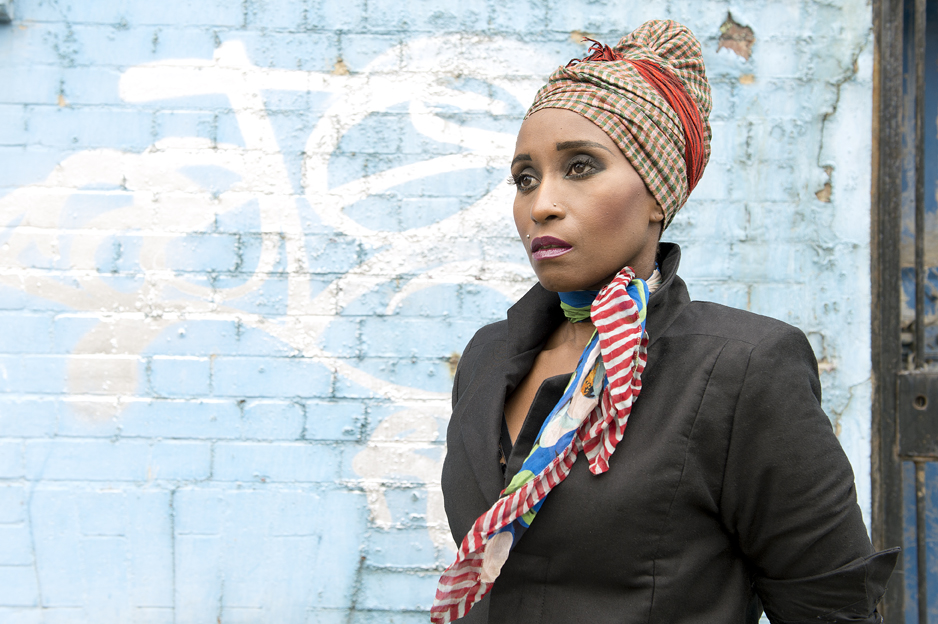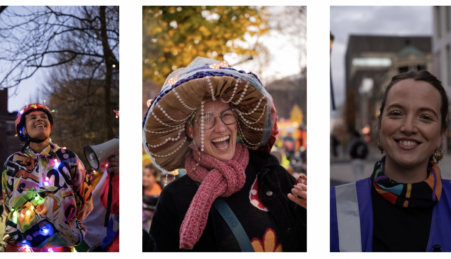By Lowri Simmons, Megan Hall, Imogen Lambert-Baker, Freya Barwell
Featured image: Siro Micheroli
Manchester Metropolitan University is hosting the 16 Days of Activism Against Gender-Based Violence campaign from 25 November to 10 December, featuring a packed programme that explores how poetry can challenge societal injustices and inspire activism.
The 16-day programme will examine how poetry can create transformational social change by engaging the public and policymakers.
The festival features readings, workshops and discussions with acclaimed poets, including Forward Prize-winning poet Dr Malika Booker, poet and performer Clare Shaw, and author and feminist activist Laura Bates.
Taking place across campus and online, the events aim to empower participants to address issues through the power of art and literature. On Tuesday 26th November, Booker and Shaw will lead an event exploring themes of inherited trauma, gendered violence and resistance.
Booker says: “I think that it is phenomenal that [the campaign] is happening at Manchester Met. I think it’s phenomenal as well, that not only are there academics speaking about it, but there are also [independent] artists.”
Speaking about the importance of the 16 Days of Activism series, Booker addresses how young people are feeling voiceless at the moment, particularly in the current context of international politics and the US election.
“[Events like this] give people the space to articulate that, and that is empowering,” says Booker. The festival will provide opportunities for our community to attend readings, engage in workshops and take part in open-mic sessions with the aim to spread awareness of gender-based violence and encourage people to get involved in activism and explore their voice in poetry and literature.
Booker is one of the many voices in the Manchester writing community taking part in the 16 Days of Activism festival. In anticipation of her poetry reading, Booker talked about the importance of community in her work: “One of my artistic practices is around community and sharing community.”
She adds: “If the space is intergenerational, and is multicultural, there’s something really powerful that happens in the dialogue.”
Booker recognises the importance of having space to indulge in creative outlets, such as the Manchester Poetry Library at Manchester Met: “You get access to all these kinds of literary canons, which kind of enrich your work and give you permission.”
Poetry holds so much power, both in political terms and in healing terms, says Booker. She explains this is why society sees it as a threat: “I often say to my students: ‘Why is it in dictatorships and in regimes that one of the first set of people who are targeted are the poets? What is it that poetry does to the imagination that these systems feel are really dangerous, and so they have to shut it down?’ If you look at it to that extreme, you can understand the power that poetry has.”
She explains how her work has always been to try and tell those stories of silenced women: “[My work involves] trying to tell those stories of women that are silenced, that are taboo.”
Booker gives a reflection on the roots of her work while discussing gendered violence and how it is inherited. One of her last projects exposed the history of female oppression: “The last project I was doing was re-envisioning the King James Bible, and placing it in the Caribbean region and writing the women who were absent, into the stories.”
Language, Booker explains, is something that can police and challenge us. “[Language] polices us, [like when] a woman [is] being held accountable by being called a ‘Jezebel’ or being called a ‘Delilah’ or ‘unclean’ or ‘sinful’.”
Booker speaks on the recent US election and how large impactful events can be translated into poetry. She says: “When Trump came in that week, all the poetry seemed quite bleak and fatalistic, particularly from people who occupied women and queer bodies. I think that gave them a space to articulate just how it felt to feel as if the world is going backwards, to feel threatened and vulnerable in society. There’s a power in speaking out.”
Encouraging students and aspiring creatives is an important part of what Booker does: “You know what I love? I love when I’m in a poetry event and some person has dragged along. You watch them go, ‘Oh my god, I didn’t know poetry was like that. This was amazing!’ And then you see them at every event. You know they’ve become a poet.”
She emphasises the importance in ‘free writing’, when discussing how she gets creative: “I have rituals. I make a cup of tea, I play some music. I start off by doing five minutes of free writing into this shiny little book.”
Discussing the broader issues connected to the campaign, Booker explains that some of her own work comes from difficult times of anger and grief. She reiterates the importance of writing frequently, and how that can inherently spark ideas you feel are important.
“Write about what you’re passionate about. Write about something that you want to change. Write about something that you felt you weren’t able to give voice to write about, something that you’re empowered to talk about, write about something that annoys you.”
For upcoming hopeful writers, Booker shared some words of advice for people who wish to share their thoughts and stories on gender-based violence and activism: “Write and share work with each other and get feedback for each other. Find people who write for fun who just meet up, meet up and write. There’s nothing like writing in community and working in community.”
Join poets Dr Malika Booker and Clare Shaw on Tuesday 26th November at 2pm. Book your tickets here.
The 16 Days of Activism Against Gender-Based Violence Festival runs from 25th November to 10th December, 2024. For more information and tickets, visit mmu.ac.uk/news-and-events.






Leave a reply